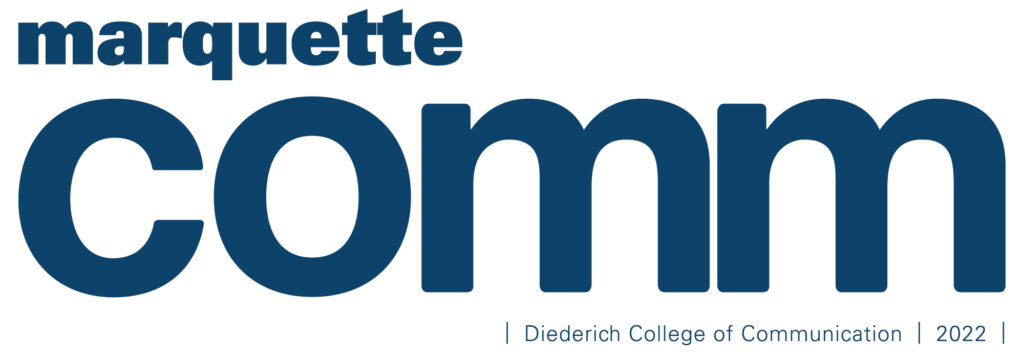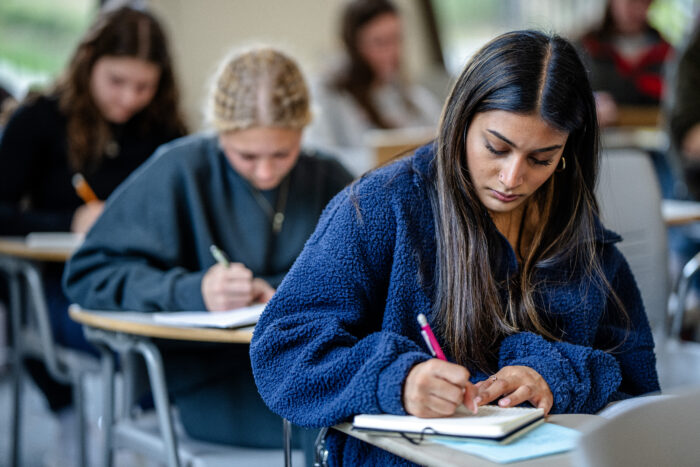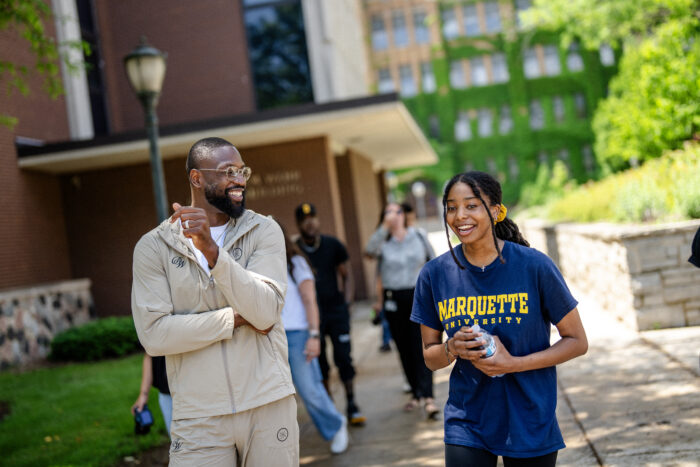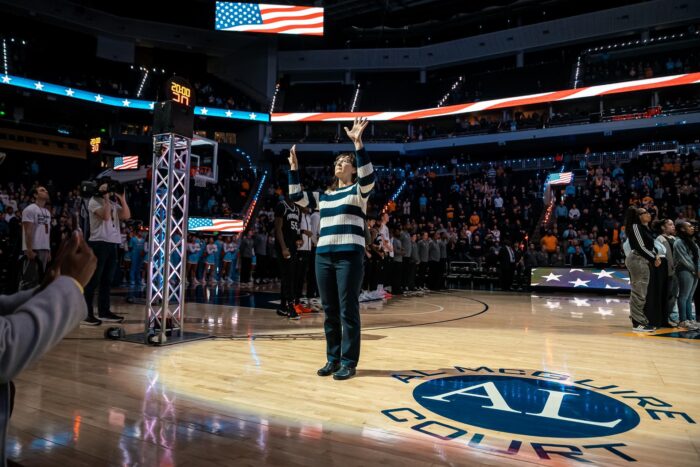New course examines how inclusive storytelling can be used as an instrument for justice.
The Diederich College of Communication empowers the next generation of journalists to Be The Difference. Dr. Ayleen Cabas-Mijares, assistant professor of journalism and media studies, strives for the juniors and seniors who sign up for her Social Justice Reporting class to be exactly that.
“In the journalism program, we’re trying to live by this model of journalism that matters,” Cabas-Mijares says. “The way I interpret that is: How do we use journalism as a tool for social justice to uphold the dignity of people who have been historically oppressed?”
Cabas-Mijares knew class lectures were important but not enough to drive this issue home. So she partnered with Marquette’s Service Learning Program to have students spend a few hours each week with university community partners — Black and Latino public schools, foster care programs at local hospitals and environmental justice groups — to learn about their work and the communities they serve. She says when students built a relationship within the local community, the narrative of their stories began to change.
Cabas-Mijares says we often only learn about Milwaukee’s minority communities when there’s a crime or tragedy, but that is not the complete story. “The members of those communities are the very people working to improve it,” she says. “The best solutions often come from the community itself.”
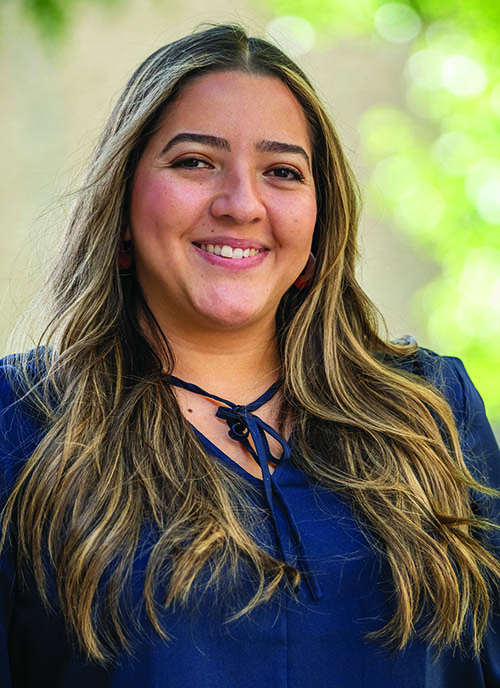
Slowly but surely, Cabas-Mijares witnessed her students gaining more confidence in conducting rigorous reporting about marginalized communities and their initiatives. By the semester’s end, they had started to think more critically about story assignments, sourcing and language.
Students also covered the on-campus Justice in Action Conference, a one-day event for Marquette students to explore their roles in service, community and social change. The articles and videos that resulted from this assignment address complex topics, such as the prison-to-school pipeline, mass incarceration and the role of art and healing in resistance, and were published in the university’s digital newsletter, Marquette Today.
Cabas-Mijares tries to extend this work beyond the classroom. She sits on the faculty advisory council for Marquette’s Institute for Women’s Leadership, where she supports the work of female faculty and staff on campus. She’s contributed to the institute’s push to address gender equity concerns on campus, drafting recommendations for President Michael R. Lovell to cultivate a framework of change at Marquette.
The Social Justice Reporting course represents more tangible change that is welcomed by Rev. Ryan Duns, S.J., assistant professor of theology. “Jesuit education stresses the importance of discernment. To discern well we need to hear all voices,” he says. “Learning to lift up and listen to each voice, especially those that have been historically marginalized or silenced, is crucial. Learning to appreciate a variety of viewpoints and stories can deepen our appreciation for the richness of our diverse experiences.”
“The seed is planted,” Cabas-Mijares says. “Students can use that social justice lens in what they do as they go out into the world and keep writing stories.”
